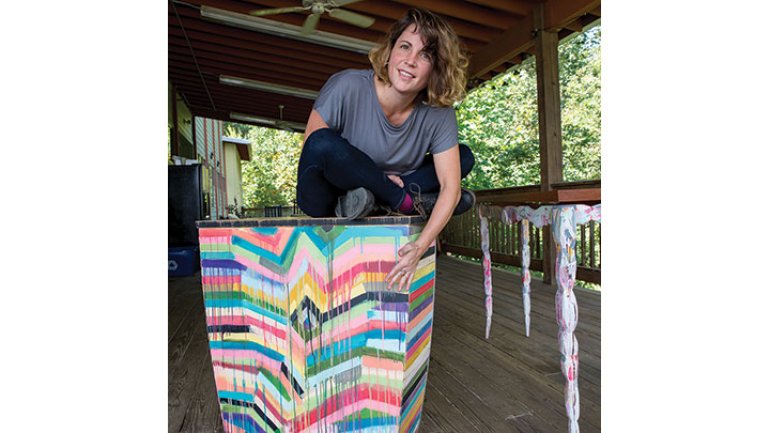Reality Bites
Reality Bites
It was already not my favorite morning. I was running late, traffic was awful, and I’d had a little spat with my sweet husband. As I entered my office, the phone rang, and the woman on the other end unleashed her anger about our August/September issue. “Why did it have to be so political?” she yelled. “That’s not craft!”
Our team had anticipated a little blowback; after all, the issue included an essay on racial tokenism, a story on a museum that caters to immigrants, an artist who helps protesters print giant banners, and a story on the pussyhat-knitting movement that swept the country after the 2016 election.
My caller was particularly livid about that last story. “Who are these vile women,” she fumed, “and why do they have to talk that way?” Had I been able to get a word in, I would have empathized. I could barely bring myself to say “pussyhat” as my colleagues and I worked on the story, afraid my mother would reach down from heaven to smack me.
But did we have to publish stories that might put people off? That was the question from another reader. “I was very unhappy to see you turn your magazine into a political-rag publication,” the woodworker wrote. “Art is one of my escapes from the drama going on in the world.”
I get it. Who doesn’t want to escape the drama today? I’ve been a news junkie all of my life, but even I have to turn away now and then from the hurricanes, the wildfires, the prospects of war and economic ruin, the maneuvering and polarization in Washington. It’s too much.
So why leap into the abyss? August/September had a social-action theme because, although craft can be a great escape, it’s also a protest. That’s been true at least since William Morris embraced Marxism in the late 1800s. The activists who railed against factory production at the beginning of the craft movement were not all sweetness and light. And when millions of women take up knitting needles in an effort to reclaim the word “pussy” – used by some, including our president, to dehumanize women and reduce them to one body part – we can’t ignore it.
That said, I distinctly remember what the woman who called lamented the most: “I want something to read with a cup of coffee!” She was depending on us for a respite. And had she not canceled her subscription, I think she would have enjoyed our story in this issue about woodworker Ellie Richards, who wants to help people relax and enjoy their surroundings. She might have loved our story about the Dinnerware Museum and its quirky, delightful collection.
For many artists, escape feels like a rare luxury, as Cannupa Hanska Luger points out. “In an ideal world, I’d love to make pretty things all day long,” he says. “But as an indigenous person in this country, I am a political entity, like it or not. I’ve had so many opportunities and have so much privilege; at this point in our political scenario, I have to weaponize that privilege.”
When political conflict seeps into life, it seeps into craft. That’s the reality. And now, I think I’ll go have a nice cup of coffee.

